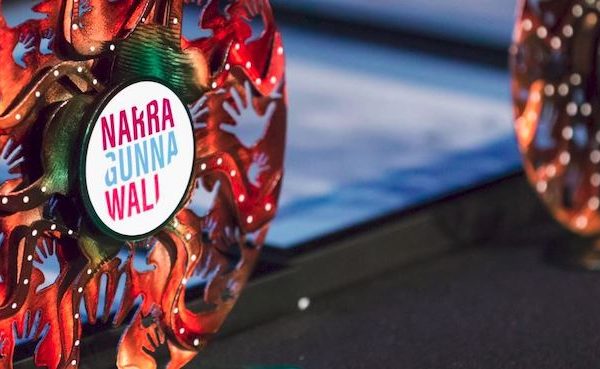Reconciliation Australia CEO encourages ECEC to take part in Narragunnawali program

Reconciliation Australia CEO Karen Mundine is encouraging all early childhood education and care (ECEC) services to take part in the Narragunnawali Reconciliation in Education program, saying that education is critical to how we understand and think about the world and about reconciliation; the earlier we have these conversations the better.
“I’ve seen many educators in early childhood services, working in partnership with Elders, Traditional Owners and community members to ensure teaching and learning is relevant to their local community context,” Ms Mundine said.
“Strengthening relationships and building respect, are central to reconciliation initiatives in education – allowing collaboration across the service and with members of the community and creating an environment where children and community members acknowledge and respect the First Australians.”
Over 450 NSW ECEC services already participate in the Narragunnawali program and have a current Reconciliation Action Plan (RAP), which is a formal statement of commitment to reconciliation.
Narragunnawali supports ECEC services and schools to develop environments that foster a high level of knowledge and pride in Aboriginal and Torres Strait Islander histories, cultures and contributions.
The Narragunnawali free online platform provides practical ways to introduce meaningful reconciliation initiatives in services, guiding educators work with children, families and their community to deliver creative and innovative work to advance reconciliation.
Through the platform, services can develop a Reconciliation Action Plan (RAP) to register and extend on existing initiatives or to begin a new journey and educators.
Educators can also access free professional learning that aligns to the National Quality Standard and curriculum resources aligned to the EYLF to support the implementation of reconciliation initiatives.
Services may utilise the RAP Framework which focuses on relationships, respect and opportunities for reconciliation with children, families and the wider community.
Ms Mundine said she has been impressed by the continued efforts of many ECEC services participating in Narragunnawali who have kept reconciliation a priority within their service and community.
“It’s amazing to see that even with all the challenges posed to services over the past few years, educators have remained some our biggest advocates, giving children the skills to contribute to reconciliation,” she said.
RAPs support the building relationships with children
A central part of the RAP process is the work and objective to strengthen relationships with children. This includes offering increased opportunities for Aboriginal and Torres Strait Islander children, as well as cultural competence for all children.
“While there is still some way to go, awareness, understanding and active inclusion of Aboriginal and Torres Strait Islander knowledges and perspectives, is moving into the mainstream – reconciliation in education is becoming increasingly well-embedded,” Ms Mundine said.
“If we are to move forward, reconciliation must happen where we live, where we learn and where we work, and schools and early learning services are at the heart of this,” Ms Mundine said.
For more information on Narragunnawali visit Reconciliation Australia’s website. Services can also register to attend free webinars to engage in real-time conversation and professional learning, guided by representatives from the Narragunnawali team and guest speakers.
Narragunnawali (pronounced narra-gunna-wally) is a word from the language of the Ngunnawal people, Traditional Owners of the land on which Reconciliation Australia’s Canberra office is located, meaning alive, wellbeing, coming together and peace.
Reconciliation Australia pays respect to and thanks the United Ngunnawal Elders Council for giving permission to use the word narragunnawali.
Popular

Policy
Practice
Provider
Quality
NSW Government launches sweeping reforms to improve safety and transparency in early learning
2025-06-30 10:02:40
by Fiona Alston

Quality
Provider
Policy
Practice
WA approved provider fined $45,000 over bush excursion incident
2025-07-01 07:00:01
by Fiona Alston

Workforce
Policy
Quality
Practice
Provider
Research
ECEC must change now, our children can’t wait for another inquiry
2025-07-02 07:47:14
by Fiona Alston













